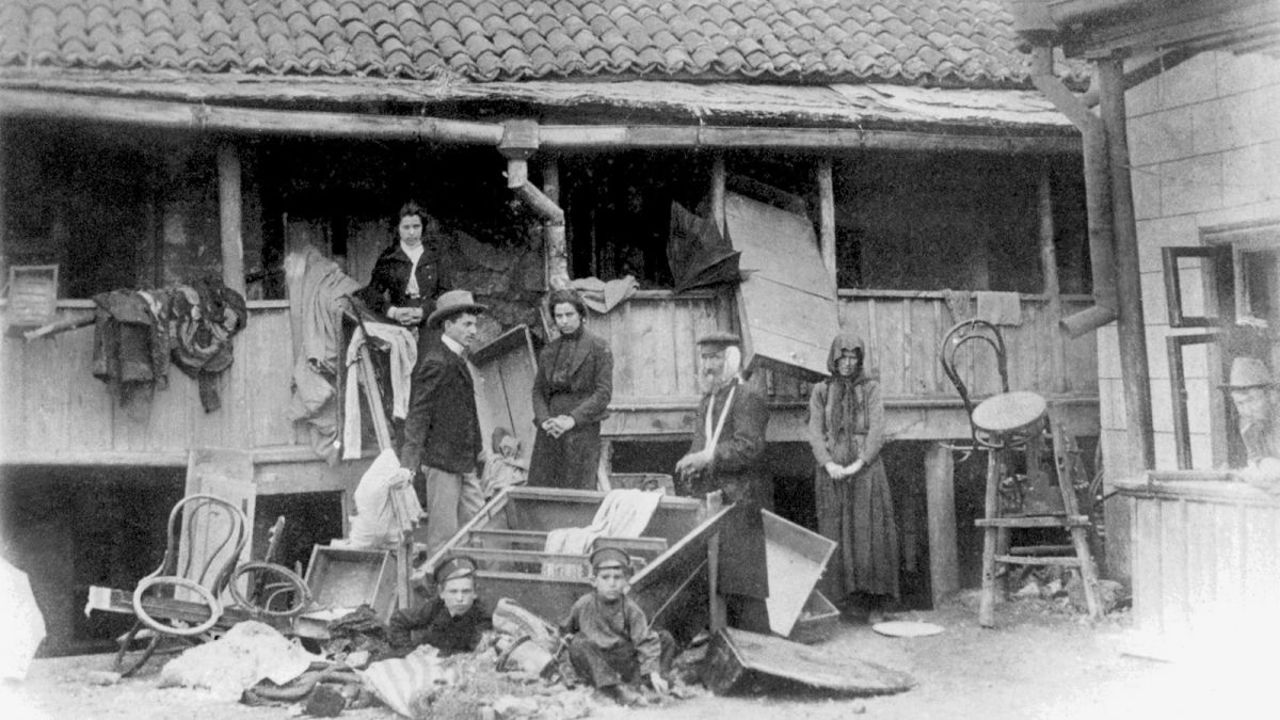Remembering the 1903 Chișinău Pogrom: Impact and Lessons for Humanity
Today, the Moldovan capital honoured the memory of the victims of the 1903 Chișinău Pogrom, which claimed 49 lives and left hundreds wounded.

Representatives of the Jewish Community in our country emphasised that this tragedy reverberated globally, leading to the emigration of Jews. Municipal authorities echoed this sentiment, deeming such atrocities unacceptable.
The Chișinău Pogrom of April 1903 was instigated by reports in the anti-Semitic newspaper "Bessarabet," alleging the ritualistic killing of a 14-year-old child in Dubăsari. Although the investigation revealed that the perpetrators were the boy's relatives, the rumour incited unrest, sparking riots across the capital and its suburbs. During the pogrom from April 6-8 (according to the old-style calendar), 49 Jews were killed, and another 500 were injured. Approximately 2,000 Jewish families were left homeless, their homes and businesses looted and destroyed.
Homage was paid to the victims of the pogrom at the outset of the event.
"This tragedy profoundly impacted the global Jewish community, prompting the exodus of Jews from Bessarabia," remarked Emmanuel Grinshpun, President of the Jewish Community Council of Chișinău.
"The 1903 Chișinău Pogrom had far-reaching ramifications for the Jews of Bessarabia and world history. It marked the onset of the physical extermination of Jews and genocide against them," he continued.
Recent events, such as the open aggression by Iran against Israel last weekend, underscore the persistent threat of global conflict.
Therefore, the significance of the Chișinău tragedy in 1903 remains undiminished. As demonstrated by events on October 7, 2023, it is imperative that we, the Jewish community of the Republic of Moldova, along with all citizens, uphold the memory of the past. This collective remembrance serves as a vaccine against anti-Semitism, xenophobia, and inhumanity, paving the way for a peaceful future.
Ion Ceban, Mayor of the capital, emphasised the indispensable role played by the Jewish community in the city's development while denouncing such tragedies as unacceptable. "Few realise that nearly 50% of the capital's residents were Jews at that time. Their contributions to architecture, healthcare, and education were significant. Today, we stand in solidarity with Israel and the Jewish people, fervently hoping to avert the recurrence of such tragedies," he affirmed.
The 1903 massacre was universally condemned, marking the dawn of the 20th century, a century subsequently characterised by the Holocaust and two world wars.
Translation by Iurie Tataru






